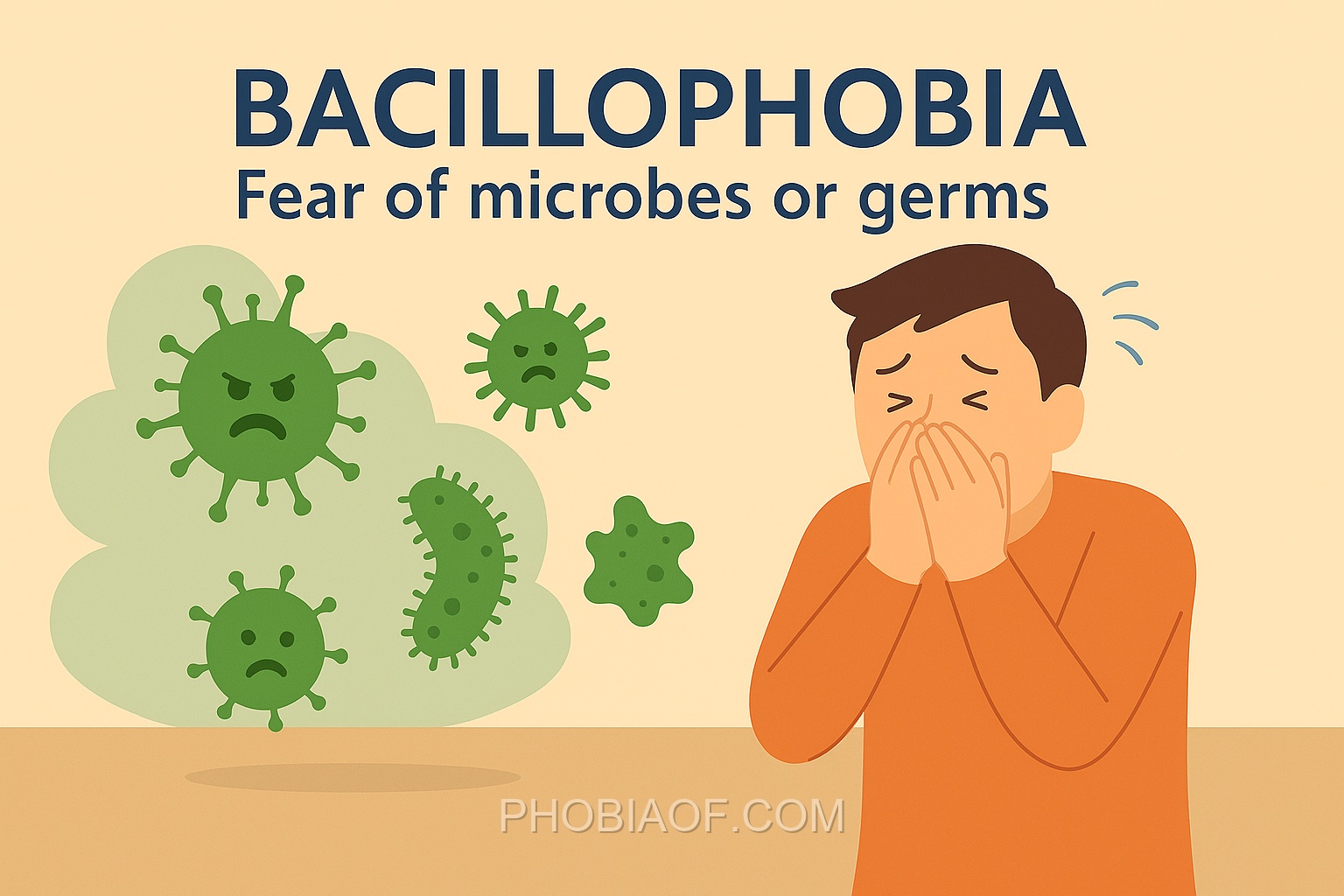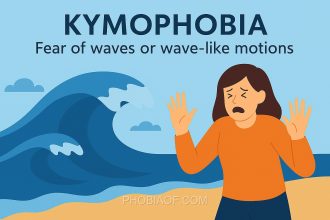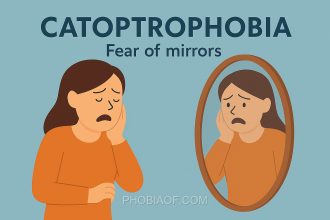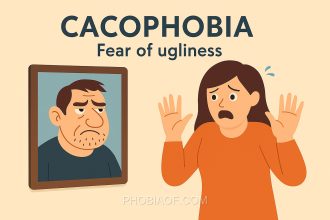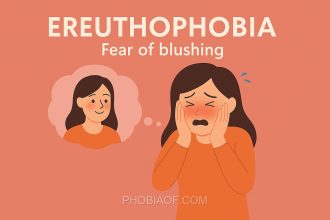Have you ever found yourself avoiding a handshake or steering clear of public doorknobs, worried about the invisible world of germs? If so, you’re not alone. This common concern can sometimes develop into a more intense fear known as Bacillophobia.
Bacillophobia is the overwhelming fear of microbes or germs. The term comes from the Latin word “bacillus,” meaning a type of bacteria, and the Greek word “phobia,” meaning fear. In simple terms, it describes a significant anxiety about germs that can interfere with daily life.
People with Bacillophobia often experience a heightened sense of anxiety about contamination. This fear can manifest in various ways, such as:
- Frequent handwashing or use of sanitizers.
- Avoidance of crowded or public places.
- Discomfort when touching objects perceived as unclean.
- Constant cleaning or disinfecting of personal spaces.
While everyone takes precautions to avoid illness, Bacillophobia can become debilitating, affecting personal relationships, work, and overall well-being. It’s important to approach this fear with understanding and empathy, recognizing that it is a genuine challenge for those who experience it.
Causes of Bacillophobia
Bacillophobia, the fear of bacteria, is a type of specific phobia that can have various underlying causes. Understanding these causes can help in managing and treating the fear effectively. Below are some common reasons why someone might develop bacillophobia:
- Genetic Predisposition: Some individuals may have a genetic predisposition to anxiety disorders, which can include specific phobias like bacillophobia. If a family member has a history of phobias or anxiety, there is a higher chance that others in the family might develop similar fears.
- Traumatic Experiences: Experiencing a traumatic event related to bacteria, such as a severe illness or infection, can trigger bacillophobia. The memory of the event can create a lasting fear of encountering bacteria again.
- Learned Behavior: Phobias can also be learned from observing others. If someone close, like a parent or sibling, exhibits a strong fear of bacteria, an individual might adopt similar behaviors and develop bacillophobia.
- Psychological Factors: Certain psychological conditions, such as obsessive-compulsive disorder (OCD), may contribute to the development of bacillophobia. The fear might stem from a compulsive need to avoid germs and contamination.
- Environmental Factors: Media coverage of bacterial outbreaks or hygiene-related issues can heighten anxiety and fear of bacteria. Constant exposure to such information can lead to the development of a phobia.
In addition to these factors, interesting theories suggest that some phobias may be evolutionary in nature, serving as protective mechanisms against potential threats. While research is ongoing, understanding the origins of bacillophobia can aid in developing effective coping strategies and treatments.
Symptoms of Bacillophobia
Bacillophobia, the intense fear of microbes or bacteria, can manifest in various ways, affecting both the mind and body. Individuals with this phobia may experience overwhelming anxiety at the thought or presence of germs, which can lead to a range of symptoms.
Common Physical Symptoms:
- Panic attacks, characterized by a sudden onset of intense fear, discomfort, or anxiety.
- Excessive sweating, which may occur even in cool environments.
- Rapid heartbeat or palpitations, often felt in the chest.
- Shortness of breath or hyperventilation, making it difficult to breathe normally.
- Nausea or gastrointestinal distress, which can occur when faced with phobic triggers.
- Dizziness or lightheadedness, sometimes leading to fainting.
- Trembling or shaking, often noticeable in the hands or legs.
Emotional and Behavioral Symptoms:
- Avoidance of places or situations where germs might be present, such as hospitals or public restrooms.
- Overwhelming dread or an ongoing sense of impending doom related to germs.
- Obsessive thoughts about cleanliness, leading to excessive hand washing or sanitation.
- Difficulty concentrating due to persistent fear of contamination.
- Withdrawal from social situations to minimize exposure to germs.
- Compulsive checking or reassurance-seeking behaviors to alleviate anxiety.
When severe, these symptoms can significantly interfere with daily life, making it challenging to perform routine tasks, maintain relationships, or pursue personal and professional goals.
Treatment for Fear of Microbes or Germs (Bacillophobia)
Overcoming a fear of microbes or germs, known as Bacillophobia, is possible with the right treatment and coping strategies. It’s important to remember that this phobia can be managed and treated over time, allowing individuals to lead a more comfortable and balanced life.
Proven Therapies
Several effective therapies can help in overcoming Bacillophobia. Here are some of the most common:
- Exposure Therapy: This therapy involves gradually facing the fear in a controlled environment. By slowly exposing oneself to germs or situations involving microbes, individuals can reduce their anxiety response over time.
- Cognitive-Behavioral Therapy (CBT): CBT helps change fearful thoughts and patterns associated with germs. By working with a therapist, individuals can learn to challenge and reframe their negative beliefs about microbes.
- Counseling: Speaking with a counselor can provide a safe space to explore the roots of the phobia and develop strategies to manage it effectively.
Self-Help Coping Techniques
Complementing professional therapy with self-help techniques can be beneficial. Here are some strategies to consider:
- Relaxation Exercises: Techniques such as deep breathing, progressive muscle relaxation, and visualization can help reduce anxiety and promote calmness.
- Meditation: Regular meditation practice can help center the mind and reduce the overall stress response related to the fear of germs.
- Support Groups: Joining a support group can provide encouragement and shared experiences, which can be reassuring and motivating.
Medication
In severe cases, medication such as anti-anxiety medications may be prescribed. However, the focus should remain on therapy and developing robust coping skills.
It’s crucial to seek professional help if Bacillophobia is interfering with daily life. A mental health professional can provide the appropriate guidance and support needed to manage this phobia effectively.
With dedication and the right approach, it is entirely possible to overcome the fear of microbes and lead a fulfilling life free from the constraints of Bacillophobia.
Conclusion
In understanding Bacillophobia, the fear of microbes or germs, it becomes evident that identifying the causes and recognizing the symptoms are crucial first steps in addressing this phobia. By gaining insight into what triggers these fears and how they manifest, individuals can feel more empowered to take control of their mental health journey.
While Bacillophobia can be challenging, it is important to remember that many people successfully overcome or manage their phobias over time with the right support. Approaches such as therapy and medical consultations can provide effective pathways to reducing the impact of this fear on daily life.
Remember, you are not alone in this journey. If you find that Bacillophobia is affecting your quality of life, consider reaching out to a mental health professional or talking to a doctor to explore your options. With patience and persistence, it is possible to cultivate a healthier relationship with your fears and lead a more fulfilling life.
Stay hopeful and informed, and take comfort in knowing that with the right help and resources, managing Bacillophobia is within your reach.
